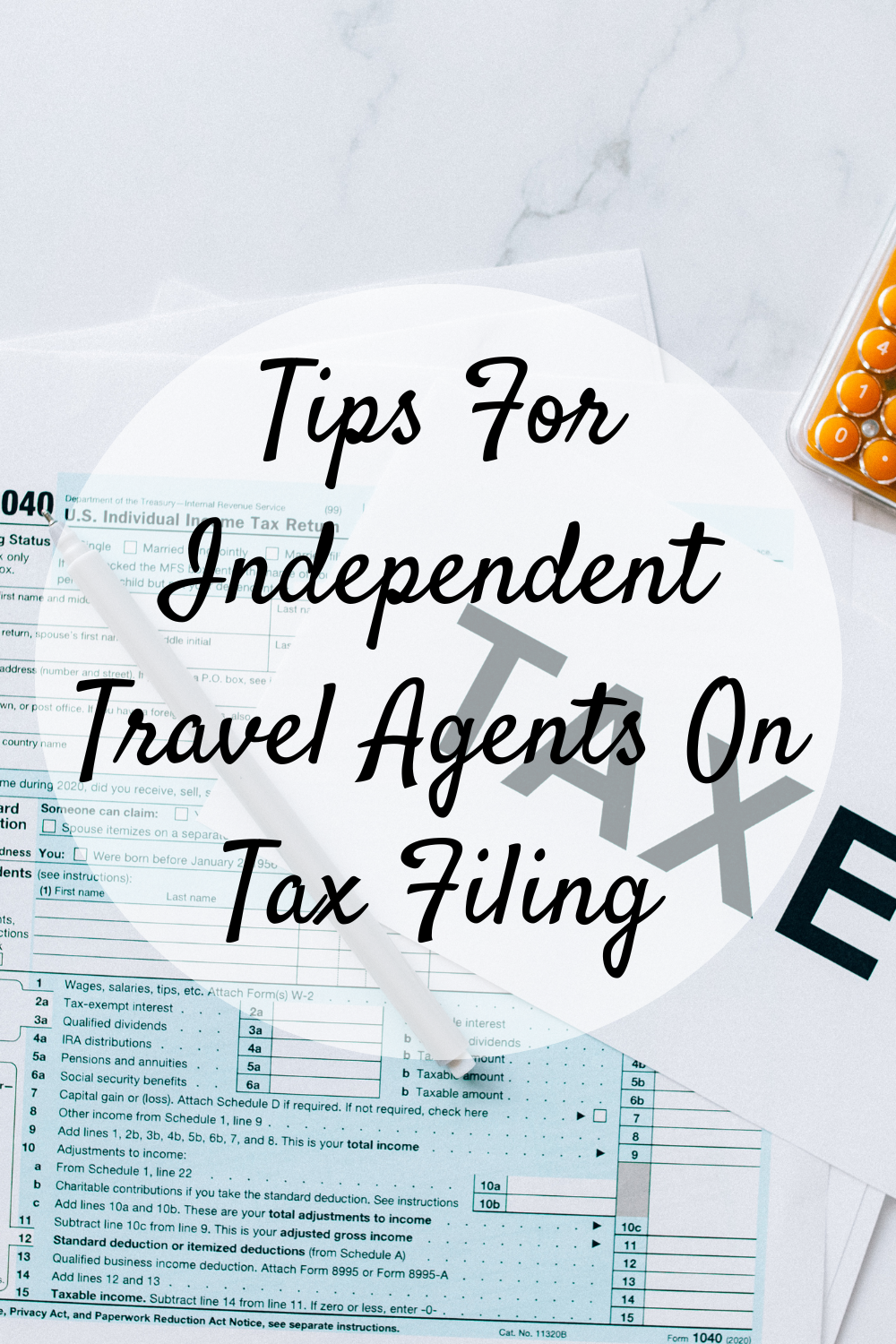
There are several tax filing considerations that you as an independent travel agency need to keep in mind. You are considered self-employed, which means you must handle your own taxes, which is one of the most crucial things to keep in mind since, in contrast to conventional workers, you are.
In order to maximize their tax savings and file their taxes, independent contractors like travel agents may run into problems. When selling hotel reservations, vacation packages, and other travel-related goods, many travel agents operate on a project-basis and make money. Because of the possibility of seasonal employment, revenue fluctuations may sometimes occur. The 1099 tax rate and form (and/or a w2 template if you find yourself working as an employee with any business), quarterly tax calculator, and self-employment tax calculator are thus essential tools that may assist you in making wise tax choices.
For independent travel agencies paying taxes, consider these suggestions:
1. Learn the tax regulations
In order to file taxes as an independent travel agency, you must first get familiar with the tax regulations that relate to your industry. Read the IRS publication on small enterprises and self-employed persons to learn how to record your income, deductions, and credits.
For independent travel brokers, it’s important to remember the following tax regulations:
-Unless you request an extension, you must submit your yearly tax return by April 15th and pay any taxes that are required.
– You are required to record all revenue you get from your travel agency, including 1099-style payments.
– Self-employment taxes, also known as Social Security and Medicare taxes, are due by self-employed people and now represent 15.3% of their net income. These taxes cover both the employer and employee components of Social Security and Medicare.
2. Recurring business costs should be monitored
Being a self-employed travel agent has several advantages, including the ability to deduct numerous company expenditures from taxable income, which may reduce your tax burden. You may write off certain costs, such as:
– Costs associated with running an office, such as rent, utilities, and supplies.
– Costs associated with traveling, such as lodging and rental vehicles.
– Marketing expenditures, including web hosting and advertising.
– The cost of your phone, camera, and computer equipment.
Maintaining precise records of all your company expenditures is crucial to ensure you don’t overlook any deductible costs. This is especially important because these agencies are exempt from some taxes, and you can learn more about the tour operators margin scheme if you live in Britain, for example. You may maintain a record of your expenditures in a spreadsheet or notepad, or you can use accounting software to manage your costs automatically.
3. Calculate the tax rate on your 1099 form
You get 1099 forms from your customers when you work as a self-employed travel agent, which implies that taxes are not deducted from your salary. Taxes on your income must be paid by you instead. Using a 1099 tax rate calculator is a fantastic idea to make sure you are allocating the right amount of money for taxes.
Based on your income and deductible costs, the calculator will help you establish your tax obligation. In order to assist you avoid underpayment penalties, it will also figure out the projected tax owed for each quarter.
4. Calculate the self-employment taxes
The self-employment taxes, which include Social Security and Medicare taxes, must be paid by self-employed people, as was previously noted. Use a self-employment tax calculator to get a rough idea of your taxes for being self-employed.
With the help of the tool, you can determine how much money you’ll need to put aside for self-employment taxes and an estimate of your tax liabilities depending on your net income. Remember that the self-employment tax rate is presently 15.3%, which includes 12.4% for Social Security and 2.9% for Medicare.
5. Maintain your tax payments on time each quarter
Quarterly anticipated tax payments are necessary if you anticipate owing more than $1,000 in taxes for the whole year. Penalties and interest fees may be assessed if these payments are not made.
Using a quarterly tax calculator to calculate your estimated tax bill for each quarter is crucial to ensuring that you pay your taxes on time and avoiding underpayment penalties. When the time comes to submit your taxes, this will help you prevent any surprises.
For independent travel brokers, handling taxes may be a huge hassle. But you can reduce the stress and increase your tax savings by being informed with tax laws, keeping track of your company spending, utilizing a 1099 tax rate calculator, calculating self-employment taxes, finding tax deductions and staying on top of quarterly tax payments. You can make sure you are remaining in compliance and choosing wisely when it comes to taxes for your travel company by heeding the advice in this guide.





Leave a Reply